Addiction is a complex disease that not only affects your physical health but also your mental well-being. Addiction isolates—it makes you withdraw from your loved ones, leads to feelings of guilt and shame, and can severely impact your mood. Even in recovery, there may be times when you feel down or experience intense emotions that can trigger a relapse. However, it’s important to remember that recovery is a journey, and there are healthy ways to improve your mood without turning back to drugs or alcohol. Knowing different activities to improve your mood can help you stay on track with your recovery and lead a fulfilling life.
Athens Recovery offers effective, evidence-based outpatient treatment that can support lasting recovery. For those in need of both addiction treatment and mental health support in the form of an anxiety or depression treatment program, our treatment center can help.
Call 844.959.4998 today to speak to an admissions specialist and get started.
How Addiction Can Impact Your Mood
Addiction has a multifaceted impact on mood. Substances like drugs and alcohol can alter your brain chemistry, leading to imbalances that trigger mood swings, anxiety, and depression. Additionally, the cycle of addiction—procuring the substance, using it, and grappling with the aftermath—can cause extreme emotional highs and lows. You may experience euphoria while under the influence, but this is often followed by intense feelings of guilt, shame, or despair. This constant emotional roller coaster can be exhausting and lead to a persistent low mood or depressive state.
Addiction can also rob you of the ability to experience pleasure from the simple joys of life, making it harder to lift your mood naturally. It’s crucial to understand these effects to be able to counteract them effectively during recovery.
Mood-Enhancing Activities for People in Recovery
Just a few of the activities you can try to boost your mood and fight depression include:
- Exercise – Regular physical activity can improve your mood by releasing endorphins and reducing stress hormones in the brain. It also helps boost self-esteem, which is vital for those in recovery to maintain motivation and positive thinking.
- Mindfulness – Practicing mindfulness techniques like meditation or deep breathing can help you center yourself and find inner peace. These exercises can help alleviate negative thoughts and improve your overall mood.
- Creative outlets – Engaging in creative activities like painting, drawing, or playing an instrument can help you express yourself and release pent-up emotions. It’s a healthy way to cope with difficult feelings and find joy in the present moment.
- Socializing – Isolation is a common struggle for those in recovery, but connecting with others can be incredibly beneficial for improving mood. Whether it’s spending time with loved ones, joining a support group, or volunteering in your community, socializing can boost confidence and provide a sense of belonging.
- Self-care – Taking care of yourself is crucial for maintaining a positive mindset. This includes practicing good hygiene, getting enough rest, eating nutritious meals, and doing activities that bring you joy.
By incorporating these activities into your daily routine, you can improve your mood and overall well-being. Remember, recovery is a process, and it’s essential to prioritize self-care and healthy coping mechanisms to maintain your progress.
Call Today to Find Your Path to Positive Change at Athens Recovery
At Athens Recovery, we understand the importance of addressing mental health in addiction recovery. That’s why we offer comprehensive treatment programs that address both addiction and mental health concerns. Our experienced team of professionals will support you on your journey to lasting recovery. Don’t wait any longer—call 844.959.4998 or reach out online today to take the first step towards a happier and healthier life. Together, we can create an individualized treatment plan tailored to your unique needs and goals.

